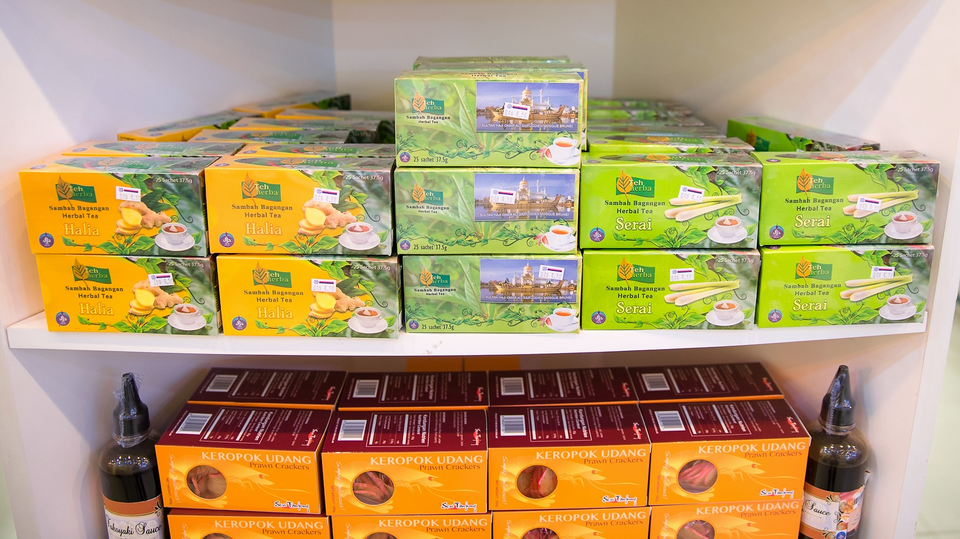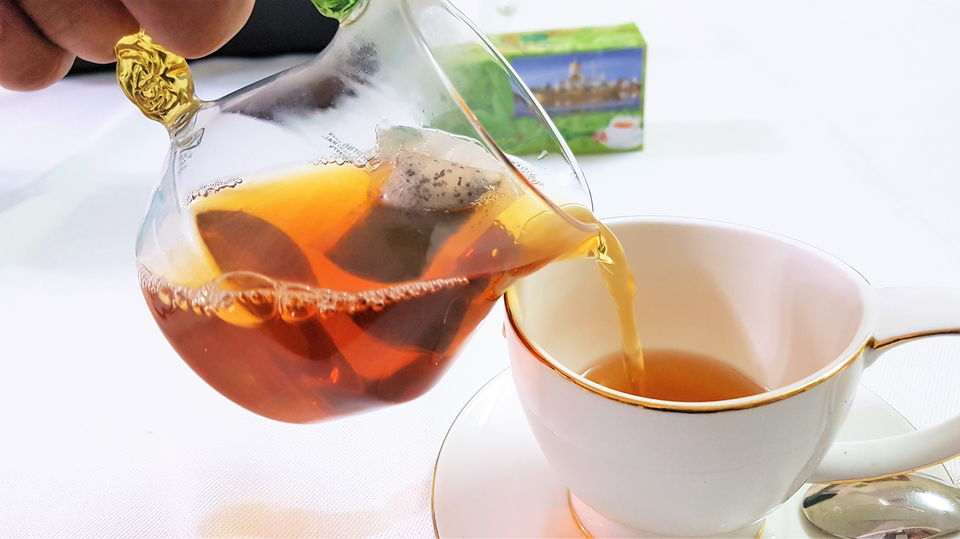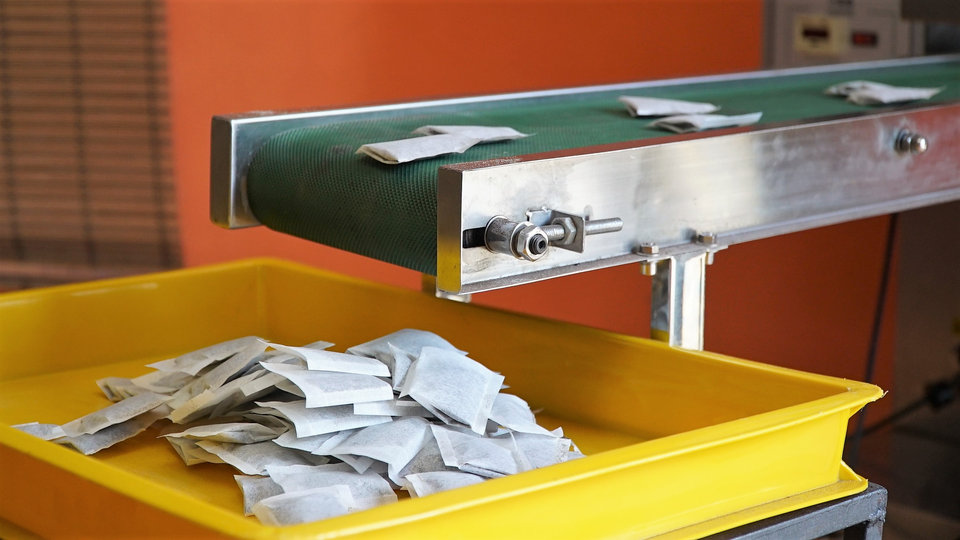“Assalamualaikum! It’s been a long time,” cried out the man behind the 3MPK Herbal Tea, Hj Amran Hj Johari, as I got out of my car at his home in Kampong Kiudang Mungkom.
It’s been a long time since I last spoke to Hj Amran, three years to be exact. The retired soldier turned car salesman is now 63-years-old, but his enthusiasm for Tutong’s Sambah Bagangan – a wildly occurring plant made into a tea – has been a constant.
In fact, it’s arguably reaching an all-time high as he proudly shares that his products have finally made it to supermarket shelves nationwide, ten years after it was first conceptualized.
“We are now in Hua Ho Tanjung Bunut, Soon Lee Mentiri, and Supasave Beribi through Darussalam Enterprise’s (DARe) Made in Brunei initiative,” said Hj Amran. “We’re also at Seria Nova’s made in Brunei products store at the airport (departure hall).”
For the better part of a decade, Hj Amran was only able to make sales intermittently through expos, direct orders and the occassional mini-mart. Since securing retail channels for 3MPK Herbal Tea – which sells for $4.50 for ten sachets in either natural, lemongrass and ginger flavours – he’s been able to consistently sell 500 to 1,000 boxes monthly.

Hj Amran’s entrepreneurial journey with herbal teas began in 2008, when the Ministry of Home Affairs were trying to get village communities across Brunei more involved in business, and introduced a village awards (AKC) back in 2008, alongside a village product development initiative.
“We (Kiudang) decided on turning one of our attractions to the village, Wasai Bedanu, into a recreational park,” said Hj Amran, who previously served as deputy chairman to Kiudang’s consultative council.
A senior villager named Larik Hidup pointed out the Sambah Begangan, an endemic plant to Borneo known scientifically as Aidia racemosa (Cav.) Tirveng, flourished wildly within the park, and could have the potential to be turned into a commercial product.
“It was almost a forgotten pastime (drinking sambah bagangan),” said Hj Amran. “In the olden days villagers would make tea out of the leaves; claiming it had rejuvenating qualities that soothed the muscles associated with heavy manual work.”

Hj Amran researched the claims, finding that the Agriculture and Agrifood Department had listed the plant within a book on herbal and medicinal vegetation in Brunei. Together with the village consultative council (MPK) they begin the first batches; washing, cutting and drying the leaves to be filled into sachets by hand in a small building infront of Hj Amri’s house.
In 2011, MPK Kiudang won bronze at the Awards of Village Excellence, but with only marginal progress made thereafter, Hj Amri decided to take ownership of 3MPK in 2013 under his company Sri Amri to accelerate growth and accountability.
“We had to cut the leaves up using parangs and then cut it down even further using a (kitchen) blender at the time,” he said. “After making a proposal to the district office, we were granted a (sachet) packaging machine.”

Today, the majority of Sambah Bagangan for production is harvested from Bedanu as well as from land owned by the local community, with Hj Amri paying $5 to villagers for every kilogramme supplied.
“Growing the trees are quite easy; they grow best in the wild and requires little to no oversight. Just plant the seeds and come back in a few years to harvest,” said Hj Amran. “In addition to the wild (occurring plants) we’ve planted over a thousand trees at Wasai Bedanu.”
The business is still very much a cottage operation; processing is mostly done by Hj Amri, his wife, one foreign worker and a few others, with the 63-year-old shouldering marketing, distribution and expansion efforts.
“Now that we have machines to grind and pack, our next move is to get a hot air oven to dry the leaves,” says Hj Amri, who is still drying the leaves in the sun, which requires frequent monitoring.
Last year, a study by Universiti Brunei Darussalam, published in the international journal Food Research confirmed sambah begangan to have antioxidant properties comparable to established tea brands.
The study utilized leaves from Hj Amran’s operation and the results provide a base of scientific validation. But the 63-year-old still has his work cut out for him in increasing local sales before he’s able to realize his ultimate ambition of supplying 3MPK overseas.
“Ultimately (for export) we would need to set up a proper factory to be able to get certifications (like GMP and HACCP),” said Hj Amran. “There is still much, much more potential.”

Teh Herba 3MPK can also be purchased online from Babakimpo. To get in touch with Hj Amran contact +6738718316.












